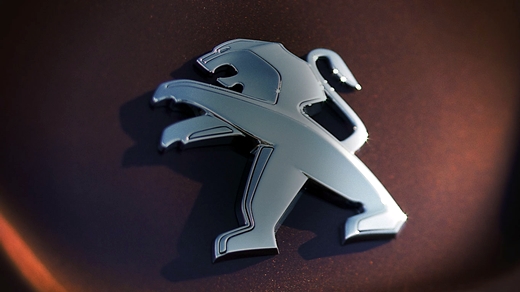The executive vice-president and a member of PSA Peugeot Citroen Managing Board says that his company had repeatedly offered Iranian carmakers – prior to the imposition of sanctions – a proposal: transferring the technology of new cars to Iran to produce sleek automobiles.
Jean-Christophe Quemard, who is a household name in France’s automotive industry, made the comment in an interview with Iran newspaper and expressed regret over the production of old, low-quality cars in Iran.
The following is the translation of a report Iran daily published on November 2 on the remarks of the French man whose name has been often heard in Iran during talks between Iran Khodro, the leading Iranian vehicle manufacturer, and Peugeot:
Quemard, Peugeot’s executive vice-president for Middle East and Africa who has recently traveled to Iran, has grievances to air. These grievances caused him to break his silence after a long time and openly talk about cooperation with Iran and the prospect of relations between the two automotive companies.
He was complaining about what has been recently reflected in the Iranian media, saying that such reports are simply based on a false interview a French magazine has published. According to the French magazine, the managing director of PSA Peugeot Citroen has said that his company will officially announce conditions for talks with Iran Khodro to build up pressure on the Iranian side. The magazine has also said that by doing so, Peugeot wants to put an end to the provocative acts of Iran Khodro when it comes to re-entering into partnership with Peugeot.
Quemard explicitly said that these remarks are nothing but misinterpretations and that Peugeot’s managers have not and will not make any such comments on joint ventures. [He also said] If Peugeot had had such a view of Iran, it would have never come to the negotiating table.
Addressing Iranians, Quemard said that remarks which have been recently attributed to Peugeot on cooperation with Iranian carmakers are not true, adding that they are merely misconceptions. “Peugeot’s rivals were in fact trying to do something to deal a blow to Europe’s second largest car manufacturer and render it unable to develop its activities.”
The Peugeot manager – who has come to Iran, at least nine times, to sign contracts with Iran Khodro and Saipa – further said that talks with Iranian carmakers are making progress and Peugeot’s three updated products seem likely to be introduced to the Iranian market in the next 18 months.
He expressed regret that cars of poor quality are produced in Iran and said that during our cooperation with Iran before the sanctions Peugeot told its Iranian counterparts that they could bring modern technologies to Iran and produce better cars.
Iranians did not welcome Peugeot’s offer, he said, adding that’s why some of the cars made [in Iran] are 2001 models. “No doubt, such cars cannot meet public demands now. There is no reason for not bringing modern cars to Iran.”
During the interview, Quemard repeatedly said he does not want to return to the past, adding “We need to build the future and make thoughtful planning for it. Before the sanctions, the two countries [Iran and France] benefited [from their cooperation] and they made losses when their cooperation was cut off. In fact, things are not always either black or white.”
He went on to say, “We are ready to cooperate with Iran in areas such as technology transfer, fuel consumption reduction, after-sale services and upgrading car safety. Asked if Iran Khodro has demanded compensations from Peugeot, he just said, “The one who has done something wrong should pay compensations.”
He added, “PSA Peugeot Citroen entered into an alliance with General Motors due to financial problems, so we had to comply with international rules and regulations. This caused Peugeot to leave Iran.”
The French manager also said that a car manufacturing company which was cooperating with Iran had to pay $9 billion in fines, adding that Peugeot, which is an economic institution, could not take such a risk.
